No one understands the true challenges of being a caregiver for a loved one with ALS unless you’ve actually been one. Regardless of where you are in your caregiving journey, who better to accept advice, guidance and emotional support from than other families and caregivers who are living through similar experiences?
Over the past years we’ve had many conversations and interviews with ALS caregivers, and while no two experiences are ever alike, there are often similarities and storylines throughout. In recognition of National Family Caregivers Month, we thought we would share some of these caregiver stories and advice we’ve collected along the way.
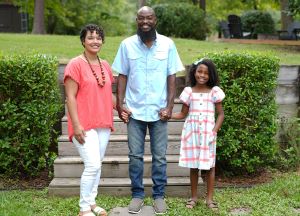
Last year we shared the Woody family’s story and their experience with ALS, surrounded by their amazing network of support through friends, family and community. Lamar was diagnosed with ALS in 2018 at the age of just 30. Suddenly, his wife Kristina found herself adding yet another hat to those she was already wearing: full-time nurse, mother, wife and now caregiver. “The challenge of being a caregiver to your spouse is once you take on that role, it's hard to separate yourself from it,” she said.
“If there's things I can do to physically aid in managing something related to ALS, obviously I do that. But I think for the most part I'm trying to just focus on still being Lamar's friend and still being Lamar's spouse.”
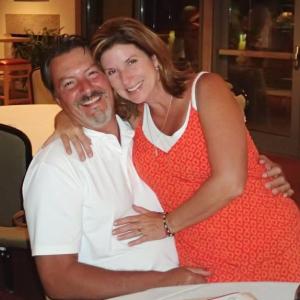
Ann Larson joined us on our podcast, Connecting ALS, to share her story about being a caregiver to her husband Dave during his fight against ALS, and spoke about the many challenges she faced. When asked what she would say to a fellow ALS caregiver she said, “As a caregiver what I would say is you are stronger than you could ever imagine, and you may not know it at the time.” Ann continues to help support and fight for the ALS community.
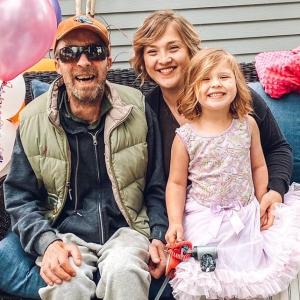
On our blog, Terra Beilby wrote about her personal journey as a caregiver to her father, “Papa Terry,” who was diagnosed with ALS and FTD. She and her family made a beautiful video to share their story and document their heartfelt experience. “My intentions of this video are to capture these precious days of our time together, of motherhood, and of caring for our Papa Terry,” said Terra. “A time capsule if you will, of us as a family, to remember this time and to share in our everyday lives of living with ALS in our home in Cologne, Minnesota.”
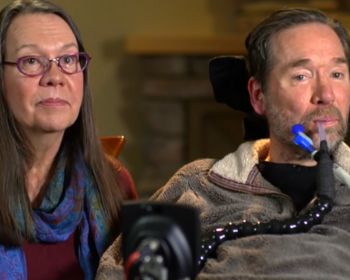
Donnie Graham and Jan Steinbock shared their advice for caregivers about how to prepare for the changes that come with living with ALS in our video and resource series entitled “From One Caregiver to Another.” When asked what advice they would give to new caregivers trying to make early decisions and planning, Jan said, “Just explore the options. And if you really feel like it’s not something that’s going to work for you and for your person with ALS, keep exploring.”
They stressed the need to talk and discuss the many impending changes well in advance to help everyone prepare both mentally and physically as the disease progresses.
“We start talking about things early and getting things in place as soon as we can. Just anticipating things makes a big difference.”
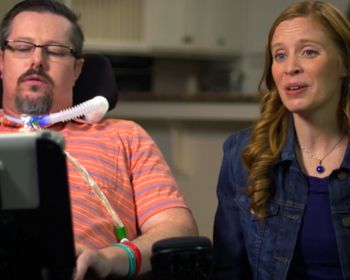
In the same series, Courtney VanTress talked about how she and her husband Jeremy, who is living with ALS, educated and prepared their kids for living with ALS. With six young children, communicating age-appropriate information presented its challenges. “I had read somewhere that you should talk with your children openly,” she said, “but only give them pieces that they can handle, like pieces at a time on something hopeful and end on a high note. And I think those two things have always guided my conversations with the children. Give them the next piece, you don’t have to give all of it upfront,” she said, “give them the next piece and we always end on a high note.”
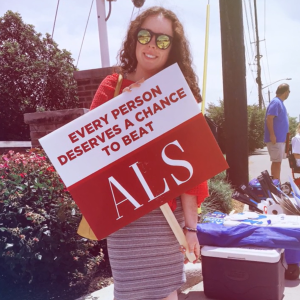
Being a caregiver as a young adult has its own set of challenges and difficult decisions. In a blog post, Maya Bulmer shared her perspective on her mom’s diagnosis. Maya said the reality of ALS hit home when they picked up her mom’s wheelchair. “This disease has challenged me to think today is what we have,” she said. “We don't know about tomorrow. We don't know about a year from now, three years from now, so I just want to focus on being happy right now with my family.”
You can find additional advice ‘from one caregiver to another’ on our website. We encourage you to connect with other caregivers through your local ALS care team or our new virtual support groups, Nationwide Connect, designed specifically for ALS caregivers. Often the best support comes from those who have walked the path before you, and along the way with you, and you will have advice to share with those who follow.
In honor of National Family Caregivers Month, download this infographic about caregiving and share on your social platforms to support a caregiver you know. To learn more about how you can get involved in the fight against ALS, visit our website HERE.
To continue to follow stories about people living with ALS in the community and learn more about the disease, follow our blog HERE.
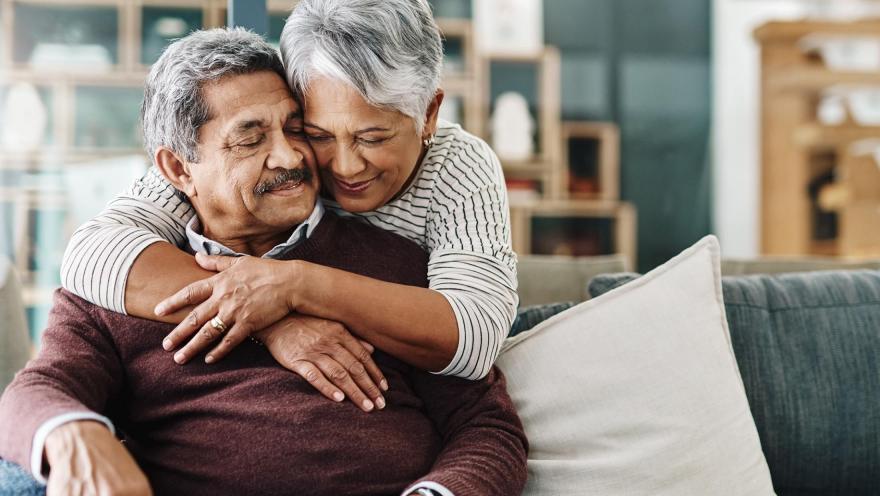

Comments
My husband, Gary, was diagnosed with ALS 4 months ago. I would appreciate any and all advice I can get from fellow caregivers. I feel as if I’m in the dark and not knowing what to expect.
Thank you in advance,
Lacy
Hi Lacy. So sorry to hear your husband is living with ALS. This page also has some caregiver advice: https://www.als.org/navigating-als/for-caregivers/from-one-caregiver-an… You may also be interested in a support group where you can talk to other caregivers. You can find a list of ALS support groups here: https://www.als.org/support/support-groups
Being a caregiver requires lots of dedication. First-hand advice from an experienced caregiver can help inspire others looking for guidance. Thanks for sharing.
Join the conversation. Please comment below.